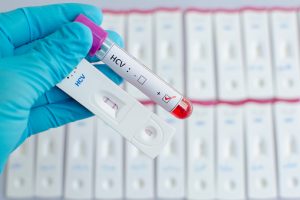 Yale researchers have found that novel antiviral therapies for hepatitis C could reduce the prevalence of the virus by 80 percent. The findings suggest that hepatitis C virus (HCV) could be eliminated within the U.S. if screening becomes enhanced and treatment is targeted to high-risk populations.
Yale researchers have found that novel antiviral therapies for hepatitis C could reduce the prevalence of the virus by 80 percent. The findings suggest that hepatitis C virus (HCV) could be eliminated within the U.S. if screening becomes enhanced and treatment is targeted to high-risk populations.
Direct-acting antiviral medications have been recently approved for hepatitis C and they have transformed the way that patients are treated. This form of treatment is effective in over 90 percent of patients. The antivirals have a way of reducing or even eliminating hepatitis C in two ways: treatment to prevent hepatitis C-related complication deaths and preventing further transmission among drug-injection users.
Advertisement
Senior author, Jeffrey Townsend, Ph.D., said, “The key finding is that a four-fold increase to the number of patients treated each year could virtually eliminate HCV from the non-injecting population within a decade.”
The researchers note that expanding screening and treatment alone would not be enough to reduce hepatitis C among high-risk individuals – injection drug users. “In order to completely eliminate HCV, efforts to access that community are extremely important,” said David Durham, Ph.D., lead author of the study. The recommended efforts could include treatment with new therapies and enhanced screening, along with some behavioral interventions, such as opioid substitution therapy or needle-exchange programs.
“We should be very optimistic about the prospect of eliminating HCV as a disease within the U.S. using these direct acting antivirals, especially if they are combined with targeted behavioral interventions to reduce transmission. Due to the currently high cost of these treatments, as a society we need to think carefully about how to make that happen,” concluded Dr. Townsend.
Also read: Hepatitis C responsible for more liver damage than estimated
Hepatitis C treatment successful with combination therapy in those with advanced liver disease
